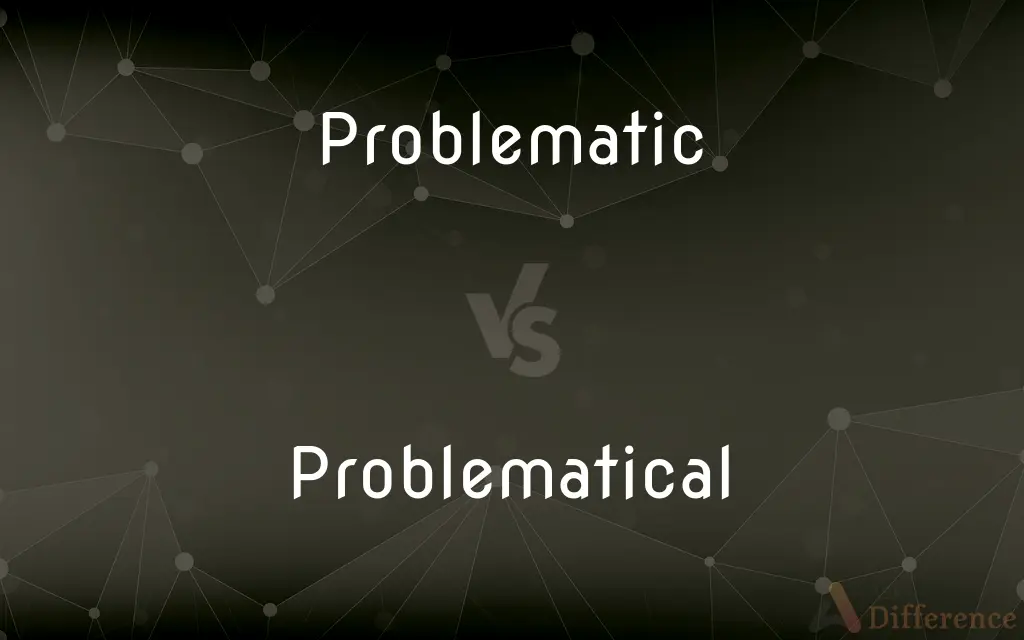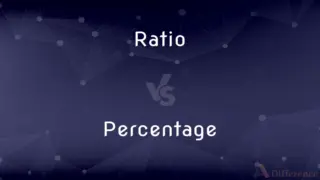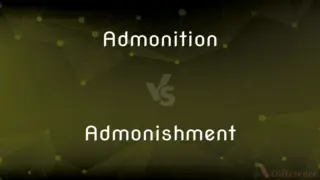Problematic vs. Problematical — What's the Difference?
By Tayyaba Rehman & Fiza Rafique — Updated on April 7, 2024
Problematic focuses on uncertainties or issues, while problematical carries a similar meaning with a slightly more formal or dated tone.

Difference Between Problematic and Problematical
Table of Contents
ADVERTISEMENT
Key Differences
Problematic and problematical are often used interchangeably to describe something that poses a problem, is doubtful, or is difficult to solve. Problematic is more commonly used in modern English, signifying something that is problematic due to its complexity or uncertainty. Whereas problematical, though less frequently used today, emphasizes the same notion but may carry a more formal or slightly archaic flavor, suggesting a degree of problematic nature that is under consideration or debate.
Both terms are adjectives that express the idea of being fraught with difficulties or complications. While problematic is preferred for its conciseness and familiarity, problematical might be chosen for stylistic reasons, to convey a slightly more nuanced or considered examination of issues. The choice between them often boils down to the writer's or speaker's preference, context, and the desired tone of communication.
In academic and professional contexts, problematic is often the go-to term when discussing issues, challenges, or subjects that require further examination or pose obstacles. Problematical, on the other hand, might be used in more formal or academic writings to emphasize the nature of the problems being addressed, adding a layer of consideration or reflection on the complexity or uncertainty involved.
Despite their slight differences, both terms serve to highlight the presence of problems or complications in a situation, idea, or project. The primary distinction lies in their usage and frequency, with problematic being the more contemporary choice, while problematical might appear in contexts that lean towards a more formal or traditional tone.
Regardless of the minor nuance in tone and frequency of usage, the underlying meaning remains consistent. They both identify issues or complexities that render a situation, idea, or subject difficult to understand, solve, or deal with. This shared core meaning ensures that in most contexts, they can be used interchangeably without significant loss of clarity or precision.
ADVERTISEMENT
Comparison Chart
Definition
Presenting a problem or difficulty.
Also presenting a problem or difficulty.
Usage
More common and contemporary.
Less common, slightly more formal or dated.
Tone
Direct, straightforward.
May imply a more considered or nuanced approach.
Context
Broadly used in various discussions.
Often found in more formal or academic texts.
Preference
Preferred for its conciseness.
Chosen for stylistic reasons or formality.
Compare with Definitions
Problematic
Likely to cause problems or difficulties.
The new policy is problematic for small businesses.
Problematical
Characterized by being open to doubt or debate.
The historical accuracy of the document is problematical.
Problematic
Fraught with potential problems.
This approach is problematic in multicultural contexts.
Problematical
Marked by problems or challenges.
The use of this technology in education is problematical.
Problematic
A situation or issue that presents complexity.
The project's timeline is problematic due to unforeseen delays.
Problematical
Reflecting uncertainty or complexity.
The outcomes of the study are still problematical.
Problematic
Inviting scrutiny or requiring a solution.
Her theory is interesting but problematic in its assumptions.
Problematical
Requiring careful consideration due to difficulties.
Their participation in the project is problematical.
Problematic
Uncertain or questionable.
His conclusions are problematic and require further evidence.
Problematical
Involving problems that need to be addressed.
The proposed solution is highly problematical.
Problematic
Posing a problem; difficult to solve
A repair that proved more problematic than first expected.
Problematical
Doubtful or disputed
Problematic
Open to doubt; debatable
"if you ever get married, which seems to me extremely problematic" (Oscar Wilde).
Problematical
Dubious or ambiguous
Problematic
Not settled; unresolved or dubious
A problematic future.
Problematical
Open to doubt or debate;
If you ever get married, which seems to be extremely problematic
Problematic
Something that poses a problem or difficulty
"[a book that] poses the problematics of memory in another light altogether" (Daphne Merkin).
Problematical
Making great mental demands; hard to comprehend or solve;
A baffling problem
I faced the knotty problem of what to have for breakfast
A problematic situation at home
Problematic
Posing a problem; having or suffering from problem(s):
Problematic
Difficult to overcome, solve, or decide.
Problematic
Not settled, uncertain, of uncertain outcome; debatable, questionable, open to doubt.
A problematic analysis
It portends a problematic future for the movement
Problematic
(sociology) Contributing (especially if subtly) to discrimination (such as racism, sexism, homophobia, transphobia, or ageism).
Problematic
Only affirming the possibility that a predicate be actualised.
Problematic
A problem or difficulty in a particular field of study.
Problematic
Having the nature of a problem; not shown in fact; questionable; uncertain; unsettled; doubtful.
Diligent inquiries into remote and problematical guilt leave a gate wide open to . . . informers.
Problematic
Open to doubt or debate;
If you ever get married, which seems to be extremely problematic
Problematic
Making great mental demands; hard to comprehend or solve;
A baffling problem
I faced the knotty problem of what to have for breakfast
A problematic situation at home
Common Curiosities
Is problematical the same as problematic?
Yes, problematical has a similar meaning but is used less frequently and may sound slightly more formal.
What does problematic mean?
Problematic describes something that presents problems or complications.
Can I use problematic in formal writing?
Yes, problematic is suitable for use in both formal and informal contexts.
Is problematical outdated?
Not necessarily, but it is considered less common and slightly more formal than problematic.
Can a situation be both problematic and problematical?
Yes, a situation can be described as both, depending on the context and the speaker's/writer's preference.
Does the suffix change the meaning significantly?
The suffix does not change the core meaning but may affect the word's formality or tone.
Do these terms imply negativity?
Both imply challenges or difficulties, but they do not necessarily denote negativity, depending on context.
Is one term preferred in specific fields?
Problematic is widely preferred across most fields due to its conciseness and familiarity.
Are these terms interchangeable in academic writing?
While they can be used interchangeably, problematic is more commonly seen in contemporary academic writing.
How do I know if my usage of problematical is correct?
Ensure it fits the context and tone of your communication; it's most suitable for formal or nuanced discussions.
Why might someone choose to use problematical?
They might prefer its slightly more formal tone or the nuance it adds to their writing.
How should I decide which term to use?
Consider your audience, the tone of your writing, and personal preference.
Can the choice between problematic and problematical affect readability?
Yes, problematic is more straightforward and familiar to most readers, potentially making it the clearer choice.
Can something be problematical without being immediately problematic?
Yes, something can be problematical if it's under consideration or debate for potential problems.
Is there a difference in the level of difficulty implied by each term?
Not significantly; both indicate the presence of problems or complexities.
Share Your Discovery

Previous Comparison
Ratio vs. Percentage
Next Comparison
Admonition vs. AdmonishmentAuthor Spotlight
Written by
Tayyaba RehmanTayyaba Rehman is a distinguished writer, currently serving as a primary contributor to askdifference.com. As a researcher in semantics and etymology, Tayyaba's passion for the complexity of languages and their distinctions has found a perfect home on the platform. Tayyaba delves into the intricacies of language, distinguishing between commonly confused words and phrases, thereby providing clarity for readers worldwide.
Co-written by
Fiza RafiqueFiza Rafique is a skilled content writer at AskDifference.com, where she meticulously refines and enhances written pieces. Drawing from her vast editorial expertise, Fiza ensures clarity, accuracy, and precision in every article. Passionate about language, she continually seeks to elevate the quality of content for readers worldwide.















































